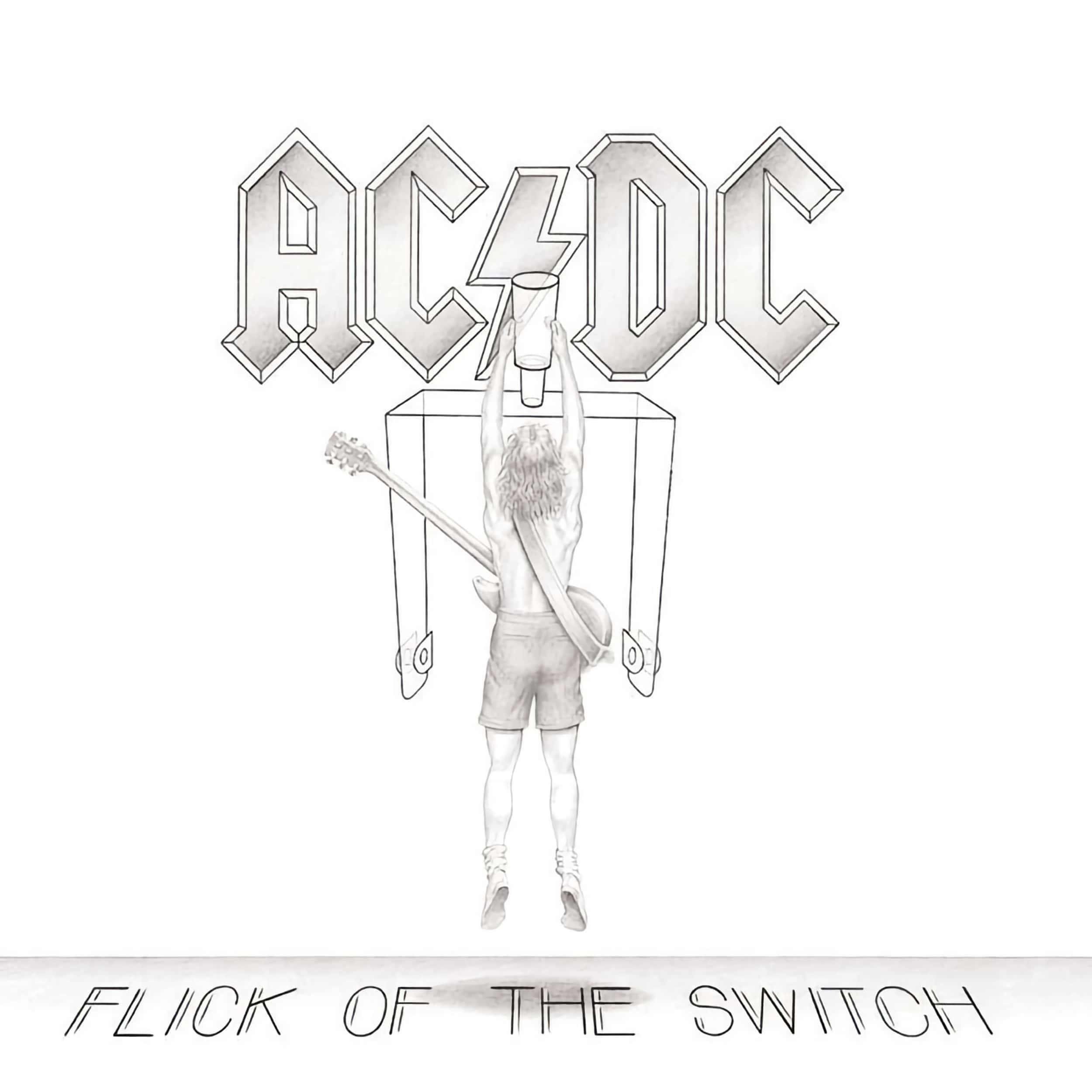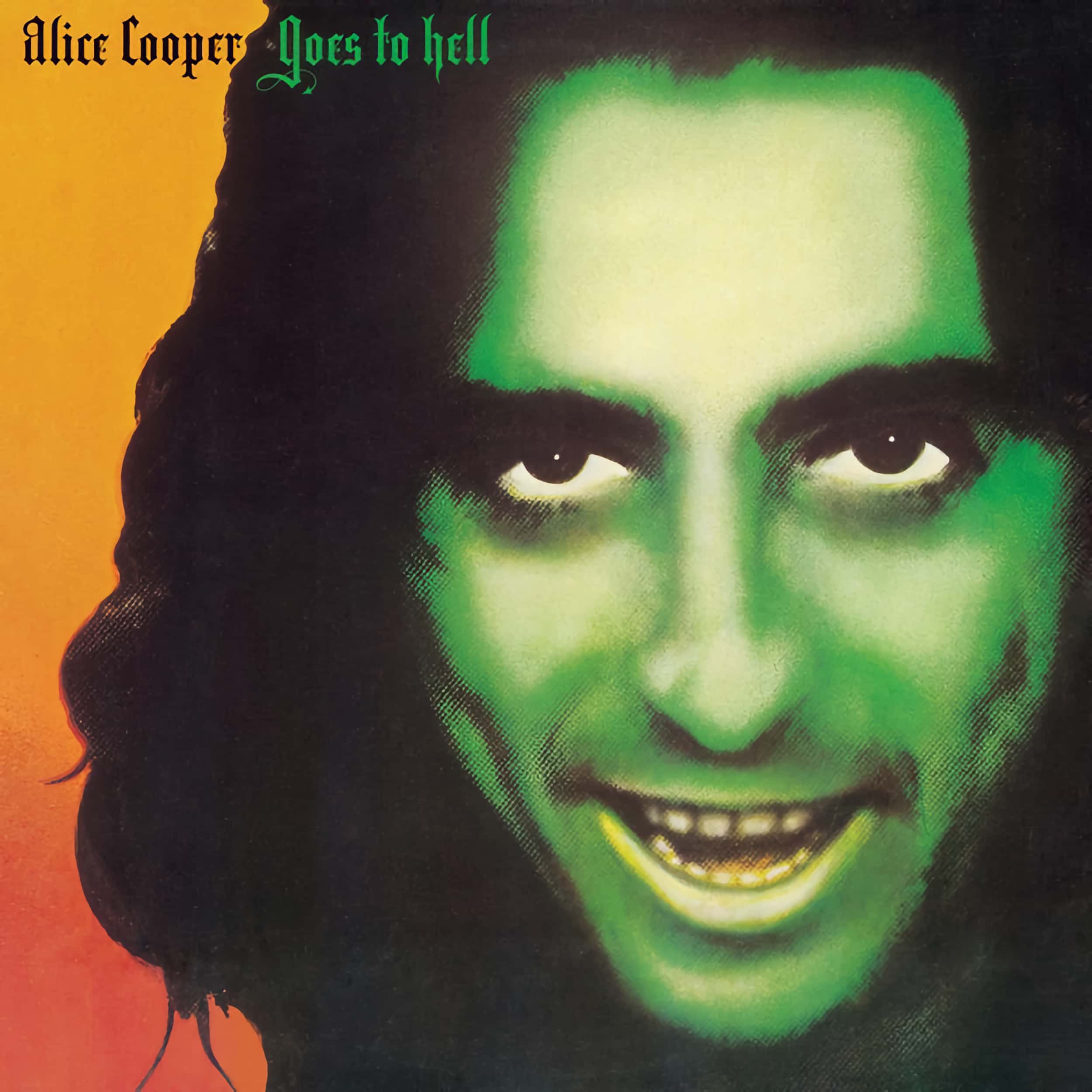Flick Of The Switch is an interesting release for it was most certainly overshadowed by the mammoth success of Back In Black and to a lesser extent, For Those About To Rock (We Salute You) but despite leaning into the band’s signature blend of hard-hitting riffs, catchy melodies, and tongue-in-cheek lyrics, what we have is a thoroughly enjoyable selection of songs but not a perfect album experience.
In some respects, Flick Of The Switch could almost be seen as a collection of songs that were cut from the aforementioned releases. It isn’t, after all, uncommon for a band to write more than they require for a given release, only to work on those songs at a later date and release them on a future album. That is, after all, how Rock Or Bust and POWER UP were conceived. To my knowledge, however, that wasn’t the case here. What is acknowledgeable is the stylistic shift towards rawer production values, similar to those heard on the Bon Scott era AC/DC albums.
It well could be the more straightforward, no-frills sound that limits the overall flow of the album experience; particularly if listening to their discography in chronological order. That said, Flick Of The Switch features numerous killer tunes and while I have ranked it as 12th in AC/DC’s discography, it remains one of the best releases from 1983 and is only ranked so low because AC/DC’s greater discography is impressive, to say the least. I do, however, stand by my statement, in the ranked list, that the album doesn’t have a memorable quality. If you were to quiz me on specific songs, from this release, I’m not sure I’d be able to answer correctly, despite thoroughly enjoying the songs when I play the album. I don’t want to suggest that this record is best listened to in the background, but there’s nothing offensive regarding the song selection, there just isn’t a chart-topping hit to speak of.
Rather than working again with Robert John “Mutt” Lange, AC/DC decided to self-produce this release and that significantly contributed to the overall style of the record for Lange’s production focus was bold and dynamic with a focus on chart-topping stadium-filling hits. While we can ponder what Flick Of The Switch may have been with Lange in the production chair, it wasn’t to be and if we’re to endorse artistic intent, then fans have to be content to acknowledge that while Flick Of The Switch may lack focus, and the bold production values of Lange-produced albums, it is ultimately what the Young brothers were aiming to achieve.
None of that, however, limits us from rocking out to this release, although the Hi-Res Lossless Apple Music stream, an Apple Digital Master, is a little underwhelming in places. Perhaps it’s the way the album was recorded and mixed, but there’s a sense of the music being concealed slightly as well as some annoying cymbal crunching. As the album was remastered in 2003, and the stream is the direct counterpart, it very well could have been a result of the 2003 remastering process that significantly reduced the dynamic range of the recording.
Other than that, the stream sounds good and you’ll find it easy to appreciate Angus Young's blistering guitar solos and Malcolm Young's rhythm guitar providing the backbone of the album, driving each song with relentless intensity. Brian Johnson's raspy vocals soar above the instrumentation, delivering gritty and impassioned performances throughout, while Cliff Williams' solid bass lines and Phil Rudd's powerhouse drumming anchor the rhythm section, adding depth and groove to the entire album.
Rising Power kicks the album off with a magnificent guitar riff that, when combined with the rhythm, creates an energetic track with some thunderous drumming from Phil Rudd and driving basslines from Cliff Williams. Brian Johnson's gritty vocals complement the lively instrumentation, but the bridge and chorus, with the backing vocals, are a distractive element in an otherwise perfect tune.
This House Is On Fire maintains the album's high energy with a relentless rhythm and infectious guitar hooks. The lyrics convey a sense of urgency that matches the intensity of the music and in many respects, This House Is On Fire is so close to an anthemic sing-along tune that it, with a little more spit and polish, could have been a standout track.
Flick Of The Switch is a fierce and unapologetic anthem that captures the essence of AC/DC's raw, no-frills sound. It’s, subsequently, the perfect title track. Again, it is only let down by the rawer production.
Nervous Shakedown introduces a mid-tempo groove with a killer guitar riff that would have been perfectly suited to Stiff Upper Lip. Johnson's vocals take on a smoother more melodic tone, adding a dynamic contrast to the album, but it’s the catchy chorus and addictively good hooks that make Nervous Breakdown, arguably, one of the best songs from the record.
Landslide opens with some lovely noodling on the guitar that builds momentum with its driving rhythm, and Johnson’s raw vocal delivery. Landslide is a solid album-only tune, but it is unlikely to be anyone’s favourite song and is largely unforgettable. That said, every time it comes on when I play the album, I thoroughly enjoy it.
Guns For Hire, much like Nervous Shakedown, is one of the standout tracks on the album. It's a high-octane rocker with a relentless groove that, when coupled with Angus Young's electrifying guitar solos and Johnson’s soaring vocal performance, creates an impressive listening experience.
Deep In The Hole is another of AC/DC’s incredible bluesy numbers that showcase not only their versatility but penchant for songs with a swaggering vibe.
Bedlam In Belgium with its upbeat tempo and catchy rhythm is an engaging listen but it’s unlikely that you’ll seek this song out, outside of the album’s linear structure as it simply isn’t a standout.
Badlands maintains the album's momentum with a driving beat, catchy guitar riffs, and a dose of the blues. The track's straightforward structure and memorable hooks contribute to its overall appeal but Johnson’s vocals sound a little strained. Nevertheless, Badlands is a killer tune that reminds me fondly of ZZ Top as it would have been perfectly suited to the trio.
Brain Shake is grossly underproduced and the cymbal crunching drives me insane each time I hear it. It’s a shame because it’s an adequate closing track otherwise. Yes, I believe Badlands would have been a stronger closer, one that would ultimately encourage the spinning of the album again, but that wasn’t to be.
Flick Of The Switch may not have achieved the same commercial success as its predecessors, but it remains a solid entry in AC/DC's discography. Its raw sound, and infectious energy, capture the essence of the band, even if the production on this release is a let-down. Nevertheless, Flick Of The Switch continues to resonate with audiences decades after its release and is one of the best albums released in 1983 and would likely have ranked higher within AC/DC’s discography had they not had so many other exceptional albums both prior and after this album’s release.






